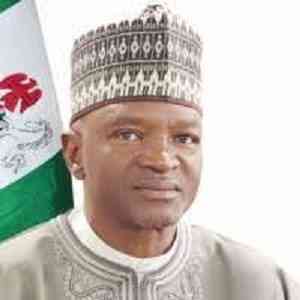
The Minister of Agriculture and Rural Development, Dr. Mohammad Abubakar, has said mainstreaming gender into the agricultural sector will create equality, enhance productivity and provide equal opportunities for women small-holder farmers and youths in the food value chain.
The minister made this known during the fifth edition of the workshop on ‘Gender mainstreaming, climate change mitigation and adaptation strategies for smallholder women farmers’ held at the University of Benin Guest House, Ugbowo Campus, Benin, Edo, for the south-south region.
He noted that the National Gender Policy in Agriculture was approved in 2019, hinged on gender equity and equality for optimum productivity in the agricultural sector. He said women constitute about 80 per cent of the labour force in the sector and grow up to 80 per cent of the food in Nigeria. Overall, they constitute about 43 per cent of the agricultural labour force in developing countries.
The minister informed the gathering that the National Steering Committee for the implementation of the National Gender Policy in Agriculture was approved and inaugurated by the ministry in readiness for the implementation of the policy. “The [gender] policy will ensure commitment to gender mainstreaming at all levels of the agricultural sector, which is seen as a tool for achieving gender-based reforms and increasing productivity by men and women along the sector’s value chain.”
Represented by the ministry’s state director, Mr. Wellington Omoragbon, Abubakar said Nigeria’s agriculture is most vulnerable and susceptible to the impacts of climate change. “Indeed, it is rain-dependent. Any change in the weather pattern, in terms of the amount, intensity, duration and the on-set, as well as duration affects farmers’ decisions on the time, the type and where to get the crops and inputs as well as other cultural operations in the value chain. Climate change and variability affect women particularly, given that they constitute the most vulnerable of the farming communities.”
He emphasised that the choice of Benin as one of the states to kick-start the series of outlined workshops is due to its place as one of the frontline states in the rainforest agro-ecological zones of Nigeria facing ecological challenges due to the impact of climate change.
Abubakar urged participants at the workshop to utilise the knowledge they will acquire, as it would expose them to climate change adaptation and mitigation strategies as well as improve agricultural productivity.
In his welcome address, the permanent secretary, Edo State Ministry of Agriculture and Food Security, Mr. Peter Aikhuomogbe, said the state will continue to work on interventions that are geared towards empowering women smallholder farmers, youths and achieving food security and creating jobs.
He thanked the ministry for initiating the programme to mitigate the impact of climate change impact on Nigerian women farmers and enhance food sufficiency.
In her remarks, the director, special duties, Mrs. Fausat Lawal, represented by the head of the gender unit in the ministry, Mrs. Ifeoma Anyanwu, highlighted the policy objectives of mainstreaming gender as contained in the 2019 National Gender Policy in Agriculture to include the improvement cultural practices that hinder women from accessing land, finance, fertilisers among others.
She stressed the need for continuous partnership and collaboration with the civil society, development partners and farmers to achieve gender equality and boost agricultural productivity in Nigeria.
A statement by the ministry’s director of information and signed by Mrs. Mabel Obe, said the grand finale of the programme will come up in Abuja on a later date to ensure complete reach out to small-holder women farmers across the six geopolitical zones in the country.


